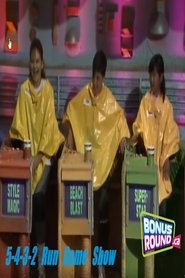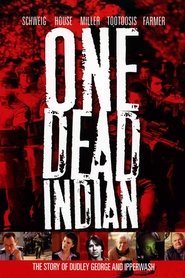Ctv TV Series - Page 8
-
The Fabulous Sixties
0000
The Fabulous Sixties
0000
The Fabulous Sixties was a 10-part Canadian television documentary miniseries narrated by Peter Jennings. Each episode featured a year from the 1960s. The programmes were produced by Philip Hobel and Douglas Leiterman under the production units Hobel-Leiterman Productions and Document Associates. The duo then produced the regular-season series Here Come the Seventies and Target: The Impossible for CTV. The first episode aired on CTV 12 October 1969 with the following episodes broadcast as occasional specials into 1970. The series was released on DVD 24 April 2007 by MPI Home Video. -
Sabbatical
0000
Sabbatical
0000
Sabbatical is a 2007 CTV television movie, which was filmed in August 2007, as a pilot, and aired on 23 November 2007. The film follows Patrick Marlowe, his paleontologist wife Dr. Julie Marlowe, and their children, as they leave the big city for Julie's dinosaur dig in Saskatchewan's Avonlea Badlands. To be close to the dig The family moves to the fictional small town of Beacon Vista. On their way to Beacon Vista, their mildly autistic son Danny is almost kidnapped by a trucker, who had previously helped them change a tire while flirting with the daughter Gwyneth. The family quickly finds some oddities about their new home. Cell phones don't work, and the local minister preaches the end is near. The family wakes up after their first night in the new home to discover that a triple murder occurred next door while they slept. Later, while both playing a video game and sleeping, Danny has some sort of psychic vision related to the murders. Patrick also has some back-story involving a scam he pulled with Jack Dri -
Grand Old Country
0000
Grand Old Country
0000
Grand Old Country was a Canadian television variety series airing on CTV from 1975 to 1980. The show was hosted by country music singer Ronnie Prophet. The show featured a variety of Canadian country music performers with a mix of others. The show aired successfully for five seasons before it was retitled "The Ronnie Prophet Show". It aired for one more season under that name. -
FashionTelevision
0000
FashionTelevision
0000
FashionTelevision, also known as FT, was a Canadian-produced special interest show focusing on fashion. The show, created by Jay Levine in 1985 was last hosted by Jeanne Beker. Production of the broadcast finally ended on April 11, 2012. The program was originally a local production of CITY-TV Toronto, the original Citytv station. Its popularity there led it to eventually be carried across Canada on various channels owned by CHUM Limited, the station's owner, and later spawning its own specialty cable channel, Fashion Television. The show was also broadcast in syndication for many years on VH1, E! and sister network style in the United States, and continues to air in many parts of Europe, making Beker a very recognizable person in the fashion world. The show's theme song was "Obsession" by the group Animotion. CTV's parent company, CTVglobemedia bought out CHUM in June 2007. Citytv, which remained the nominal producer of the show throughout its history, was sold to Rogers Communications; however, because CTVglob -
Canada AM
0000
star 6Canada AM is a Canadian breakfast television news show, that has aired on CTV since September 11, 1972. It is currently hosted by Beverly Thomson and Marci Ien, with Jeff Hutcheson presenting the weather forecast and sports. The program currently airs only on weekdays, and is produced from CTV's facilities at 9 Channel Nine Court in Toronto. In addition to CTV's local owned-and-operated stations in Eastern Canada as well as affiliate station CITL-DT Lloydminster, the program also airs on independent station CJON-DT in St. John's, Newfoundland and Labrador, as well as CTV News Channel, the network's 24-hour national news service. The program previously aired on CTV's O&Os in Western Canada, until they launched their own all-local morning news programmes called CTV Morning Live in fall 2011. -
It's Your Move
0000
It's Your Move
0000
It's Your Move was a Canadian charade-style game show originally produced in the mid-1960s. Created by Art Baer and Ben Joelson, the show's original host was Paul Hanover. It's Your Move was broadcast on the CTV television network for its full run, but was shown in United States syndication from September 18 to December, 1967 with Jim Perry as host. The series was revived by producer-director Sidney M. Cohen in Canada from 1975–1977. -
Telemiracle
0000
Telemiracle
0000
Telemiracle is a telethon organized by the Kinsmen and Kinettes in Saskatchewan, Canada for the benefit of the Kinsmen Telemiracle Foundation. Initially broadcast on both CTV and CBC affiliates in Saskatchewan, it is now broadcast, commercial-free, exclusively on the province's CTV affiliates. Generally broadcast the first weekend of March, the 37th edition took place in Saskatoon on March 2 and 3, 2013. -
Target: The Impossible
0000
Target: The Impossible was a Canadian documentary television series seen nationally on CTV from September 1973 to mid-1974 normally on Tuesday nights at 9:30. The series was produced by Philip Hobel and Douglas Leiterman and focused on scientific achievements. However, Target: The Impossible concluded after one season, failing to repeat the longevity of their previous series Here Come the Seventies. -
Tooth Fairy, Where Are You?
0000
Tooth Fairy, Where Are You? is a 25-minute made for TV animated short produced by Lacewood Productions and directed by Paul Schibli. It was originally broadcast on Canada's CTV Television Network in the year 1991. -
Here Come the Seventies
0000
Here Come the Seventies was a Canadian documentary television series seen nationally on CTV from 1970 to 1973 normally on Thursday nights at 9:30. The programs were produced by Philip S. Hobel and Douglas J. Leiterman, who previously produced The Fabulous Sixties series for CTV. "Communications - The Wired World" was the first episode to air, on 17 September 1970. Toronto electronic music group Syrinx produced the programme's theme song, "Tillicum," which became a minor Canadian radio hit in 1971. -
Excuse My French
0000
Excuse My French
0000
Excuse My French was a Canadian television sitcom, which aired on CTV from 1974 to 1976. Produced by CFCF-TV, the series starred Stuart Gillard and Lisa Charbonneau as Peter and Marie-Louise Hutchins, a mixed anglophone-francophone couple living in Montreal. The series, produced in Montreal, was judged the best television show of the year by the Montreal branch of the Association of Canadian Television and Radio Artists in 1975. -
Terry
0000
Terry
0000
Terry is a biopic of Canadian amputee athlete Terry Fox, dramatizing his national Marathon of Hope run across Canada to raise money for cancer research. The film, produced by Shaftesbury Films, aired as a television movie on CTV in 2005. It was written by Dennis Foon and directed by Don McBrearty, and was created in part because the earlier 1983 film The Terry Fox Story had been criticized by Fox's family for inaccurately depicting his personality. Shawn Ashmore portrays Fox. Unlike Eric Fryer, who previously portrayed Fox in The Terry Fox Story, Ashmore is not an amputee. For some scenes, a real amputee body double was used, while in others, digital editing was used to superimpose a prosthesis over Ashmore's real leg. The film's cast also includes Matt Gordon as Fox's publicist Bill Vigars, Catherine Disher and David Huband as Fox's parents Betty and Rolly, and Noah Reid as his brother Darrell. The film concludes with a mixed montage of footage of the actual Fox and the film version to the music of "Turnaround" -
5-4-3-2-Run
0000
5-4-3-2-Run
0000
5-4-3-2-Run is a Canadian game show for kids that ran from about 1988 to 1990 on CTV in Canada and on many independent stations in the United States. Hosted by Andrew Cochran, the show combined general knowledge questions, wacky stunts and messy surprises similar to Double Dare. -
Anything You Can Do
0000
Anything You Can Do
0000
Anything You Can Do was a Canadian stunt-based game show that aired on that country's CTV network and in syndication in the United States from 1971–1974. The host in the show's first season was Gene Wood, who at the time was also the announcer on Beat the Clock. For the last two seasons, Don Harron was the host. Bill Luxton was the announcer for the series, which taped at the studios of CJOH in Ottawa, Ontario. The game was billed as a "battle of the sexes" and was played by two teams of three, men against women. -
Juno Awards of 2006
0000
Juno Awards of 2006
0000
-
A Kin to Win
0000
A Kin to Win
0000
A Kin to Win was a Canadian television game show initially produced in Montreal in 1961 then aired on the CTV network in 1962. Jimmy Tapp was the programme's host. -
Stars on Ice
0000
Stars on Ice
0000
Stars on Ice was a weekly television ice show, broadcast from 1976 to 1981 on the CTV Television Network in Canada. The series was hosted by Alex Trebek and later, Doug Crosley, and featured skaters such as Toller Cranston. The program was produced on an ice rink set up at Studio 6 of CFTO-TV in Toronto. The series was produced and directed by Michael Steele, had a regular cast of 14 world-class ice professionals, most of whom lived and taught skating locally in and around Toronto. The variety show format on ice consisted of a glitzy "show opener" by the regular cast of skaters and a bigger budget production number with elaborate set pieces in the middle of the half-hour. Rounding out the half hour were famous and novelty-act figure skaters, vaudeville-type acts, and "affordable" non-skating celebrities at the b-list phase of their careers, such as Davy Jones and Micky Dolenz formerly of The Monkees, Eddie Mekka of Laverne & Shirley, and 1960s recording artist Donovan. Due to being only minimally dependent on la -
Any Woman Can
0000
Any Woman Can
0000
Any Woman Can is a Canadian home improvement television series which aired on CTV between October 1974 and September 1975. Hosted by Monica Parker, the show featured home repair tips for homemakers such as small machine repairs. -
Sunday Edition
0000
Sunday Edition
0000
Sunday Edition was a Canadian television public affairs program which aired from 1988 to 1999. The program was hosted by Mike Duffy and originated at CJOH-TV in Ottawa. Over the course of its run, it aired in several different time slots from late Sunday morning to early Sunday afternoons. Its format was similar to that of U.S. Sunday morning talk shows. The program was not originally part of the CTV network schedule, but rather a program co-operatively produced by several CTV affiliates. Sunday Edition later became part of the Baton Broadcast System schedule, and only officially became a CTV program in late 1997 after Baton Broadcasting's acquisition of the network. The CTV News-produced Question Period, which had been cancelled in the mid-1990s apparently due to the success of Sunday Edition, was revived in 2001 and now fills a similar role.


